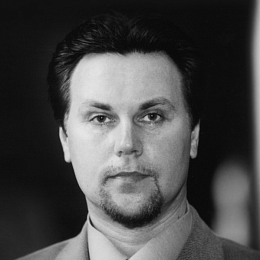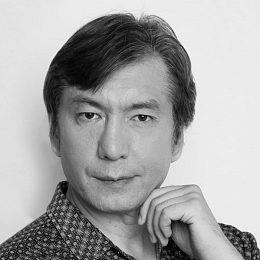stage
Artists
Credits
Libretto: Luigi Illica and Giuseppe Giacosa after Victorien Sardou’s play of the same name
Music Director and Conductor: Dmitri Jurowski
Stage Director: Irkin Gabitov
Production Designer, co-director: Vyacheslav Okunev
Chorus Master, co-director: Vyacheslav Podyelsky
Lighting Designer: Alexander Kibitkin
Conductor: Evgeny Volynsky
Chorus Master: Sergei Tenitilov
Children’s Chorus Master: Margarita Mezentseva
Assistant to Music Director and Conductor: Eldar Nagiev
Assistant Stage Director: Nikolai Natsybulin, Timofey Sokolov
Assistant Production Designer: Petr Okunev
Assistant Movement Director: Anna Ryabukhina
Soloists engaged in production:
Veronika Dzhioeva, Olga Kolobova, Irina Novikova (Tosca)
Mikhail Agafonov, Konstantin Zakharov (Cavaradossi)
Alexei Zelenkov, Andrey Triller (Scarpia)
Roman Vereshchagin, Alexei Laushkin, Andrei Triller, Maksim Golovachev (Angelotti)
Konstantin Zakharov, Yuri Komov (Spoletta)
Ruslan Balyagov, Roman Vereshchagin (Sciarrone)
Konstantin Buinov, Roman Vereshchagin (Jailer)
2 hours 45 minutes
two intermissions
Performed in original language (Italian) with Russian subtitles
A great story of love and betrayal performed at NOVAT venue. A famous singer and an artist are destined to be happy together, but their love story is intervened by politics and police force.
Giacomo Puccini’s operatic masterpiece comprises passion, immersive story and great music. Of all Puccini’s operas, Tosca conveys the fullest feeling of love, as lavish as Italian love can be. For over hundred years now Tosca has been performed at the best venues of the world, and the leading parts Floria Tosca, painter Cavaradossi and insidious Scarpia are entrusted only to the top rank singers.
Rome, June 1800. A short-lived Republic finally falls. Those who fought for liberty are thrown in jail at Castel Sant'Angelo. A heavy cloud of reactionists’ wrath is impending the Roman empire. Italian territory is invaded by French forces led by Napoleon. Italian patriots believe that Bonapart will bring peace and freedom to their ill-fated country.
ACT 1
It’s early morning and Angelotti rushes into the church while it’s still empty. A former consul of the fallen Roman Republic, he escaped the prison at Castel Sant'Angelo. His sister, the Marchesa Attavanti, has left a key to the chapel, where he can change his clothes and take shelter.
The painter Mario Cavaradossi arrives to continue work on his picture at the church. Yesterday he noticed a parishioner, passionately praying to Madonna for a long time and decided to borrow her facial features for Mary Magdalene on his picture. Angelotti breaks into his work on his way out of the chapel. Cavaradossi offers him help without any doubt. They overhear Floria, Cavaradossi’s love, and Angelotti hides back into the chapel. Floria Tosca is a famous singer, Roman all time favorite. She overheard footsteps and she is convinced it was a woman. Mario calms her down. Tonight they plan on visiting their villa.
Suddenly Tosca recognizes Attavanti’s features in Magdalene. Another spasm of jealousy is followed by a request to make Magdalene’s eyes dark like Tosca’s, instead of blue. Cavaradossi swears love and loyalty to her; Tosca leaves.
Now Cavaradossi gives Angelotti a key to his villa and reveals a secret hideaway in the well. The sound of a cannon signals that Angelotti's escape has been discovered. It is now dangerous to stay here, both leave the church through a backdoor.
The Sacristan announce the choirmen great news: Bonaparte has been defeated and this evening there will be a celebration at Palazzo Farnese, where Tosca will perform a celebratory cantata. This act is ceased abruptly with the entry of baron Scarpia, head of the secret police, an agency feared by entire Rome. Spoletta and other police agents search the church, Scarpia interrogates the Sacristan and finds evidence.
Angelotti has been here and Cavaradossi helped him escape.
Tosca arrives in the nick of time. She’s singing cantata tonight, which means they won’t rendezvous with Mario. Scarpia shows her a hand fan with Attavanti emblem that was dropped by Angelotti and implies Mario’s unfaithfulness. Tosca falls for it and enraged, decides to confront her lover. Scarpia sends his agents after her to find Angelotti’s location.
The congregation fulfill the church, the service is about to begin. Scarpia has one thing on his mind – he has to win Tosca.
ACT 2
Scarpia’s apartment at Palazzo Farnese. Royal chambers produce the sounds of gavotte, then a celebratory cantata. Scarpia sends a note to Tosca inviting her in after cantata. Spoletta reports no sign of Angelotti at Cavaradossi’s place, but they have arrested Cavaradossi for what it’s worth.
Cavaradossi refuses to answer Scarpia’s questions and manages to give the whisper to Tosca to keep silent of what she already knows about Angelotti. Scarpia orders to torture Cavaradossi. Overhearing his screams and begging Scarpia for mercy Tosca finally breaks and gives away Angelotti’s location.
The torture is over, but now Mario is sentences to death. Scarpia and Tosca are left alone together. He is ready to make a deal, but the price for Mario’s life is her love. In her presence he orders Spoletta to act out an execution and shoot blanks. Tosca does not recognize Scarpia’s perfidy, only asking for a pass to leave Rome with Mario. Then she spots a knife on the table.
Tosca kills Scarpia when he was approaching her and then leaves his apartment.
ACT 3
The upper parts of the Castel Sant'Angelo, early the following morning. At four am sharp Mario will be executed. All his thoughts are about Floria. So she appears. Tosca now has a pass to leave Rome, she has killed evil Scarpia. The only thing left is this theatrical execution.
However, Cavaradossi realizes that it’s his end, even dead Scarpia is dangerous. Tosca tells him to fall dead as convincing as she does it on stage. Mario bids farewell to his love.
Rifle men fire, Tosca praises the realism of his fall. No movement is allowed until everyone leaves. Once the soldiers have left, she hurries towards Cavaradossi only to find out he’s dead. Tosca doesn’t need this life anymore, so she jumps off the tower to her death.


























